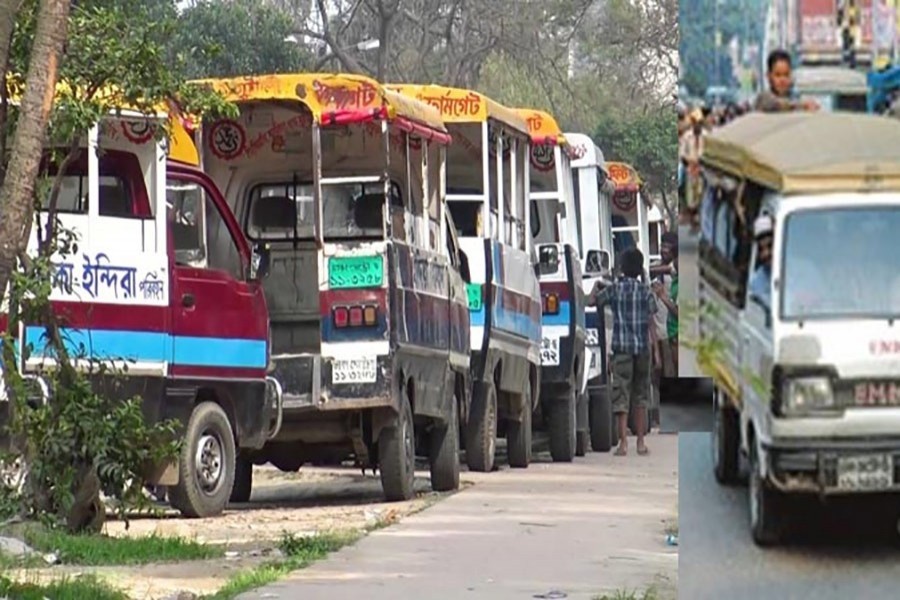A news agency report confirms that human haulers locally known as laguna are running on city roads in violation of the recent ban imposed on those. A high police official stated that the vehicle was not supposed to be on the capital's roads; those were permitted to ply on feeder roads outside the main city. There is no argument with the contention of the police official. But what is surprising is that the authorities have taken years to realise this simple fact. For decades, this inconvenient and risky transport has ruled several city roads including segments of main thoroughfares carrying passengers far in excess of capacity right under the nose of traffic sergeants and constables. Even more offensive was the practice of employment of teenagers as helpers and drivers, the majority of whom had no driving licences. The law enforcement authority should explain how this could go on for decades. This is no sudden discovery that these vehicles cause 'serious traffic problems' and are 'the main causes of road accidents'. This shows mismanagement of traffic was -and perhaps still is - at its worst in the city to which the law enforcers wilfully turned a blind eye.
Even if the belated realisation holds on, it is better late than never. But the news agency's report sheds light on the lack of coordination between and among the various bodies and agencies involved with the city's traffic management. Reason dictates that these vehicles should be off the city roads. But it must be admitted that however unacceptable and accident-prone those are, a large number of commuters found the service convenient and cheaper. Sudden removal of those is supposed to create a vehicular crisis and this crisis has been further compounded by the presence of a far fewer number of public buses than usual on different city roads.
Better it would have been if the phasing out of these awkward vehicles followed a well-devised procedure. There was need for pressing into service some modes of alternative transport. The authority did not show any concern about the plight of low-income commuters such as garments workers. These vehicles were an alternative to crammed public buses and helped save time for commuters of the lowest bracket. Now the concern is, if there will be any cheaper and safer mode of transport to replace those human haulers.
There is certainly a heavy demand for the kind of service these vehicles rendered on the city road. No post-haste decision brings dividends. Sure enough, all will be happy to see that these vehicles do not stage a comeback. The authorities should have given a serious thought to this matter. When a decision intended to do well causes sufferings to a large number of people, because there was no back-up plan, it is supposed to miscarry. Let this not happen in this case. Now how the gap left by human haulers in the city's transportation can be soon filled must be considered with all seriousness. There is a need for closer cooperation and coordination between the Bangladesh Road Transport Authority, the law enforcement agencies and transport companies to overcome the problem.


